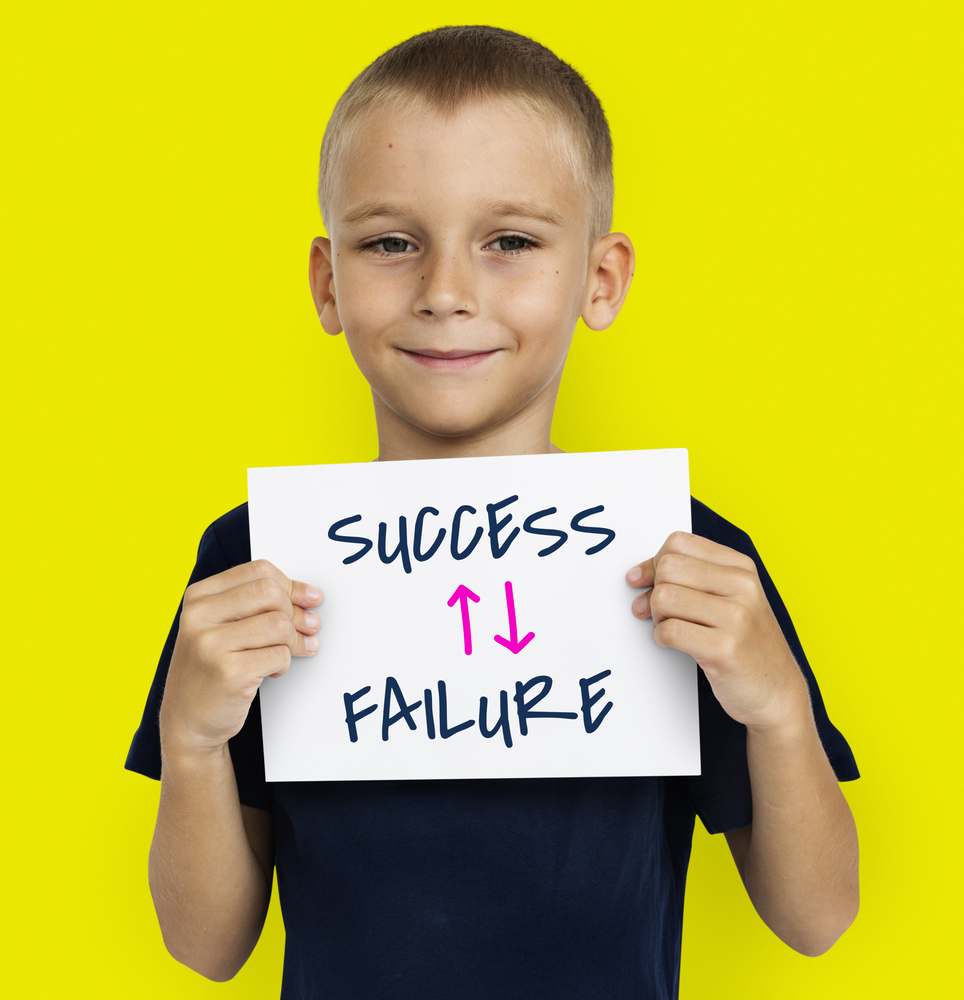When was the last time you admitted you failed? Better yet, have you ever felt comfortable talking about your failures? How often do you use the word “failure” in daily life? How does even thinking about failing make you feel?
Legendary American football coach Vince Lombardi once said, “It’s not whether you get knocked down; it’s whether you get up.”
This reminds me of a cult TV show that I used to watch growing up in Israel, “Zehu-Ze” (“That’s It”). It had a character by the name of Yatzek who discovered interesting places all over Israel and the kids watching the show had to guess where he was.
At the end of each episode, Yatzek would fall in a different way: from a tree, into the river, from the back of a horse, and even into cow manure. Naturally the kids who were watching would be concerned. To reassure them, he always said: “Kids, no need to worry; Yatzek always falls and gets back up.”
An entire generation of Israeli kids grew up with this strong message on a weekly basis: Don’t worry. If you fall, you just get back up and try again.
I believe our culture has a very strong influence on our failures, and mostly, on our attitude toward these failures.
In late 2006 I joined the founding team of Modu. Modu was founded by serial entrepreneur Dov Moran, who previously led M-Systems to one of the biggest M&As in the history of Israeli high-tech. In a very short time, Modu raised more than $ 120 million, recruited over 200 employees in Israel and abroad, opened a few subsidiaries around the world, and developed and manufactured two consumer products.
All elements for success were present and yet, only three years after its inception, the company closed its doors.
But many Modu employees decided to start their own startups, including me. Out of this one big failure, dozens of new business ventures were initiated.
How could it be that people who were part of such a huge investment in time, energy, resources and sacrifices were not discouraged after being part of a failed startup? Rather, they decided to invest more energy, take more risks and start ventures of their own.
This is a bold move, since statistically 90 percent of startups fail and the 10% of startups that make it are likely to fall apart along the way.
What is it that drives people to try despite the risk of failure? Is it possible that people’s level of comfort with failure is somehow related to their culture, as demonstrated by Yatzek, the crazy character that kept falling and getting up?
The Oxford Dictionary defines failure as “lack of success.” You have either succeeded or failed. It’s a binary game.
On the other hand, if you look at the definition of “failure” in Hebrew, it is much more fluid: “someone that tripped, made an error, did not succeed.”
Our language is a mirror of our culture. Informal messaging plays a major role in the values we adopt, which we learn from a very young age.
In Hebrew, adolescence or teenage years are referred to as “The Foolish Age.” At this age people tend to act without thinking, resulting in many failures. Therefore, the terminology only reflects their inherent nature. When society regards them as such, as evident in Israel, it gives young people the chance to follow their natural way and experience what might be regarded as foolish – before they become young adults.
Even the Israeli military seems more tolerant of failures relative to other military organizations worldwide. The Air Force Academy teaches how to cope with failures as an essential part of regular conduct drills.
After every single flight, the crew gathers in the “investigation room” and the pilot debriefs on what was successful and what was not, in front of a squadron of 40 fighters. The focus is on learning from mistakes and not to make the same mistake twice.
Israeli culture does not encourage failure; rather, it is somehow more tolerant and knows how to accept failure in such a way that we keep getting back up, trying, moving forward and advancing. The main challenge is to dust yourself off and try again.
On a personal and professional level, I admit, I fail at least once a day. From this, I’ve learned that one of the things that really makes me happy is that my children are growing up in Israel, where we have the unique ability, as a culture, to look at any event head-on, success or failure, and discuss and learn from it.
I wish all of us could give our kids the understanding that the process is sometimes more important than the outcome, that failures are part of life and that what really matters is how you pick yourself up after you’ve failed.
So go ahead — don’t be afraid to fall. Let your kids fail. Just make sure to teach them to get up and never stop trying.
Inbal Arieli was a lieutenant in the elite IDF intelligence 8200 unit and later took leading roles in the Israeli high-tech sector. She is a senior advisor to Start-Up Nation Central and is currently co-CEO of Synthesis. Featured as one of the 100 Most Influential People in Israeli High-Tech, Inbal is working on an exploration of how Israeli culture breeds entrepreneurs from a young age. You can follow her on her blog or on Twitter, Facebook and Medium.














